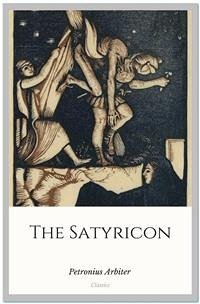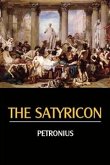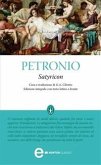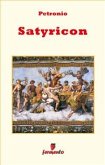The Satyricon is one of the most outrageous and strikingly modern works to have survived from the ancient world. Most likely written by an advisor of Nero, it recounts the adventures of Encolpius and his companions as they travel around Italy, encountering courtesans, priestesses, con men, brothel-keepers, pompous professors and, above all, Trimalchio, the nouveau riche millionaire whose debauched feasting and pretentious vulgarity make him one of the great comic characters in literature.
Bitte wählen Sie Ihr Anliegen aus.
Rechnungen
Retourenschein anfordern
Bestellstatus
Storno









